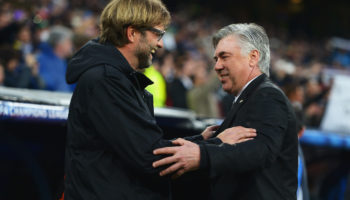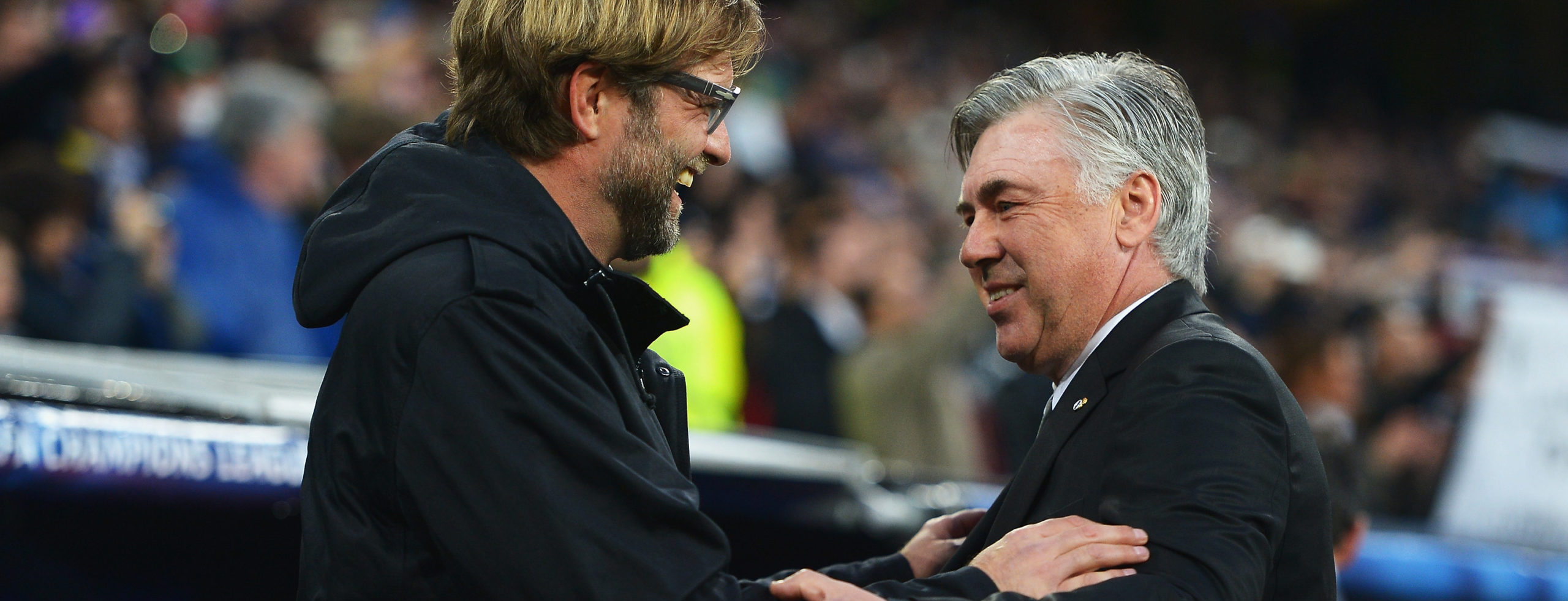This summer has seen several changes at the helms of Europe’s elite clubs, such as Carlo Ancelotti returning to Real Madrid and Julian Nagelsmann taking over at Bayern Munich, but how can we predict which hires will be successful?
To answer this, we’ve looked at every managerial appointment by a major European team in the last decade and broken down what the top football managers had in common.
We’ve defined a leading team as one that has reached the quarter-final stage of the Champions League at least five times and competes in one of the ‘big five’ domestic European leagues.
This gives us a total of 72 reigns to analyse, with the success of each being judged using their performance in the league and cup competitions relative to the club’s long-term average.
For example, a manager could be judged a success at the likes of Lyon but the same achievements may not be enough to clear the bar for a richer club like Chelsea.
We’ve also excluded current spells that are still too new to be judged fairly.
Managers fare best in their forties
If Julian Nagelsmann is to make a success of his spell at German champions Bayern, then he will need to fare significantly better than the average thirty-something.
Most of the managers under 40 who have taken the reins of an elite European side over the last 10 seasons have not repaid the board’s faith.
For example, Andre Villas-Boas struggled at Chelsea and Clarence Seedorf’s brief spell at Milan is best forgotten.
New appointments who were in their forties – particularly those approaching 50 – have tended to work out best of all, with over half able to lead their club to success.
Premier League winners Pep Guardiola and Jurgen Klopp are recent examples of inspired appointments in this age group.
Legendary players command respect
There’s an element of optimism in thinking that a player who excelled on the pitch can transfer that winning mentality to others after they retire and also become top football managers, but this logic often pays off.
Bosses with glittering playing careers have tended to fare better than those who achieved less, with Zinedine Zidane’s trophy-laden spells at Real Madrid a powerful recent example.
“Knowing the league” is overrated
A factor often discussed by journalists and pundits in the wake of a new manager being announced is whether they “know the league”.
Past experience of the division as either a player or while in charge of another club sounds like it should be an advantage, but recent history suggests that it isn’t.
New managers with no previous playing or managerial roles in the same league have succeeded comfortably more than half of the time, which is more than can be said for those who have past experience to draw upon.
For example, both Leonardo and Vincenzo Montella lasted a single season at one of the Milan clubs despite having played and managed in Serie A before.
Meanwhile, appointments such as Manuel Pellegrini joining Manchester City and Chelsea hiring Antonio Conte both yielded league titles despite their new coaches having no experience of working in English football.
Experience is everything
Regardless of a manager’s age, playing career or where they’ve worked before, the data suggests that some prior experience in charge of a football club is a necessity.
Those who have taken their first steps in management at the helm of a European giant have almost always failed.
Andrea Pirlo’s disappointing debut at Juventus, which ended their run of nine consecutive Serie A titles, and Thierry Henry’s disastrous spell at Monaco are powerful examples of why appointing a rookie manager is a huge risk.
Those with three to six previous managerial roles or six to 10 years of experience as a head coach have fared best of all, leading their new clubs to success almost two-thirds of the time.
It may be a cliche, but having already won a major trophy also correlates well with the ability to acquire more.
While just over a quarter of managers without a major achievement to their name made a success of a new job, those with three to five under their belt prevailed two thirds of the time.
A connection with the club can compensate
If you are unable to attract one of the top football managers with a track record of winning silverware, then a former club servant is a better option than a stranger.
Trophyless managers who had previously been on the club’s payroll were successful more than twice as often as those with no connection to their new employers.
Former Barcelona star Luis Enrique had an empty trophy cabinet prior to his appointment as the Catalans’ manager, but left the club with two league titles, three Copa del Reys and a Champions League win to his name.
Hansi Flick recently followed a very similar path after returning to Bayern Munich, winning both the Bundesliga and Champions League at his first attempt.
Join bwin today and receive up to £20 money back as a FreeBet if your first wager (3+ selections at odds of 1/2 (1.5) or greater) is a loser! Terms and conditions apply.
















